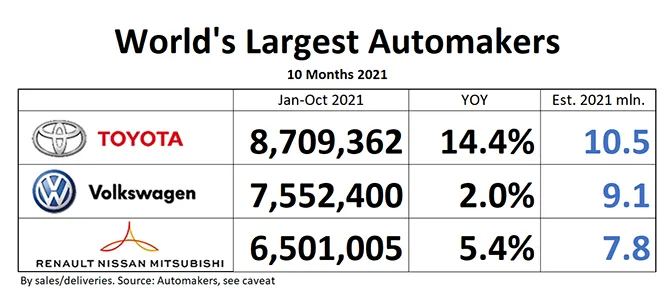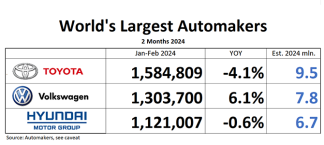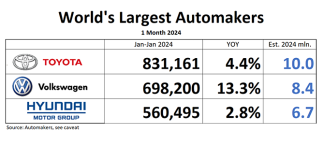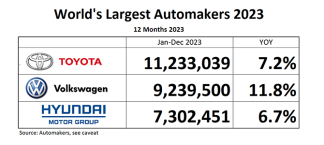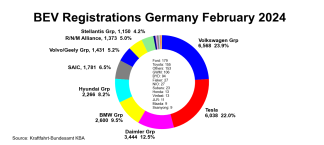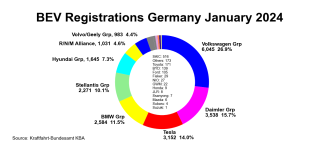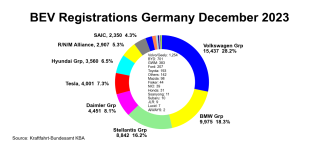With only two more months to go for the year, Toyota’s position as World’s Largest Automaker 2021 looks pretty much unassailable. Toyota leads the pack more than 1.1 million units ahead of 2nd-placed Volkswagen. For Volkswagen to pass Toyota, the Japanese automaker would have to cease sales in the last two months of the year, and it did not do so in November.
All automakers continue to suffer from a worldwide parts supply shortage caused by the spread of COVID-19, and its knock-on effects, such as disruption of worldwide air and sea freight. Toyota appears to manage the misery much better than its German peer. Despite a year-on-year decrease of sales and production in August, Toyota’s global YTD sales are 14.4% ahead of last year, while Volkswagen eked-out a minuscule 2% growth over the same period in the previous year.
The fraught Renault-Nissan-Mitsubishi Alliance follows another million units behind Volkswagen. Renault’s global sales for the January-October period are 1.4% below the same period last year, Nissan’s global sales are 5.9% up for the period, Mitsubishi Motors looks very healthy with a 25.7% increase of its year-to-date output.
And now for the usual disclaimer: Daily Kanban is now ranking global automakers by sales. We used to rank them by production, because this was how the global automaker umbrella association OICA had done it in the past. OICA seems to have thrown-in the towel, and you no longer will find any recent automaker rankings on the previously authoritative OICA website, neither by production, nor by sales. Reliable production data are harder and harder to come by, forcing us to switch to sales/delivery data published by automakers. Be aware that “deliveries” can be a rather elastic term. Deliveries can be sales to end users, or cars dumped on dealer lots, or cars “delivered” to sales organizations, or combinations thereof.
Also, please note that Mitsubishi Motors does not publish global sales, only domestic sales in Japan. For that reason, we are forced to use Mitsubishi’s published global production data as a proxy. Speaking of the Alliance, their number reporting is not allied at all, and a common picture requires considerable Excel machinations. Nissan and Mitsubishi report sales and production, Renault only reports deliveries. Mitsubishi does not report global sales, Nissan does. To make the confusion complete, Nissan sometimes reports sales for the April-to-March fiscal year, and sometimes for the calendar year.
